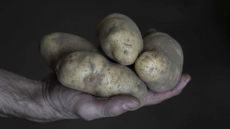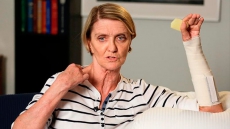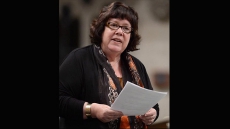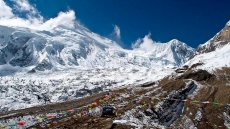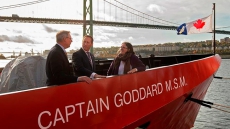OTTAWA — Preston Manning, Paul Martin and Jean Charest walk into a bar with 10 economists.
No, it's not a joke, but the punchline is a new, fully private commission that hopes to engineer a fundamental change in Canada's fiscal policies to help the environment — and the economy.
Canada's Ecofiscal Commission launches today advocating a single, overriding principle: To start putting a price on pollution and stop taxing income, employment, profits and other things we actually want more of in our economy.
"We should not be indifferent about how we raise revenues," says Chris Ragan, a McGill University economist who is chairman of the $1 million-a-year commission. "They're not all the same."
He believes the notion is no less ambitious and controversial than public health care, or the Canada Pension Plan, or continental free trade, policies that have become national orthodoxy.
"We're here to say, 'Hey, not only is this doable, it's smart,'" Ragan, who has served as an adviser to the governor of the Bank of Canada at Finance Canada, said in an interview.
"I actually think this is the next great policy opportunity."
While the message may not be new, the messengers are.
The commission, funded by five family foundations and two corporate sponsors, is comprised of 10 nationally recognized economists and backed by a cross-partisan advisory board that includes everyone from Manning, Martin, Charest and former B.C. premier Mike Harcourt to tax specialist Jack Mintz, former Alberta finance minister Jim Dinning, Suncor CEO Steve Williams and Dominic Barton, the global managing director of McKinsey and Co.
In some respects it replicates the National Round Table on the Environment and Economy, a research shop begun in 1988 by the Mulroney government but axed in the 2012 budget by the Harper government.
While the official line was that the roundtable's research was duplicated elsewhere, senior cabinet minister John Baird acknowledged the government pulled the plug because the research kept pointing to politically unwelcome carbon taxes.
"We think the independence is crucial," Ragan said of the new, privately funded group.
"The Ecofiscal Commission is independent of all governments. Period."
And while he said the commission won't shy from critiquing policies that are ineffective or counterproductive, "our goal is not to enter into a fight with anybody," said Ragan.
"Our goal is to lay out practical, sensible, good policy options. What we will not do is simply be critical."
These are serious people with a serious agenda, not likely to be derailed by predictable screams out of Ottawa about job-killing carbon taxes.
"Here's where we're hoping that who we are is as important as what it is we have to say," Ragan said.
The commission also has much broader aims than picking a fight with a Conservative government in Ottawa that's been playing off the economy against the environment since it came to office almost nine years ago.
Leona Aglukkaq, the federal environment minister, was back at it Monday in the House of Commons, batting away questions about the latest UN report on climate change by saying the Harper government is "committed to protecting the environment while keeping the economy strong."
Canadian governments of all levels raise about a third of the national GDP in revenues each year. Taxes on environment related activity amount to just one per cent of GDP.
Other comparable countries to Canada in the OECD raise up to five per cent of their revenues from environment taxes.
Ragan called the commission "national in scope but regional in details."
"What we are not doing is looking for textbook solutions and hoping they can just kind of work anywhere. We are aiming our report and aiming our analysis at the provinces and cities because that's where most of the rubber hits most of the road."
The biggest hurdle, said Ragan, is the mind set that it can't be done.
"If a bunch of pretty accomplished, policy-experienced economists, who are non-partisan and fully independent, stand up and say, 'This would be good for the economy and good for the environment,' hopefully that message is credible."
